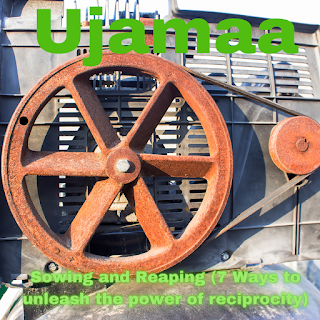The Ant’s Secret to Moving Mountains
.png)
https://www.spreaker.com/episode/the-ant-s-secret-to-moving-mountains--69517528 Have you ever looked at a problem in your life—or our community—and felt like it was just too big to move? We see the "grasshoppers" of economic disparity, family tension, and systemic hurdles, and we feel small. We try to tug at them by ourselves until we burn out. In today's episode, we're looking at a Tanzanian proverb that reveals the simple, mathematical power of Ujima. We’re moving away from the exhaustion of solo effort and into the efficiency of collective work. There is a specific way to "yoke" your energy with others that makes the impossible feel light. If you’re tired of pulling and getting nowhere, it’s time to change your strategy. Tune in to find out why two are always better than one. Nguzo Saba Narrative Map Find your way and align your personal steps with the power of the community by getting the Nguzo Saba Narrative Map: https://link.content360.io/NguzoSaba...



.png)
.png)


